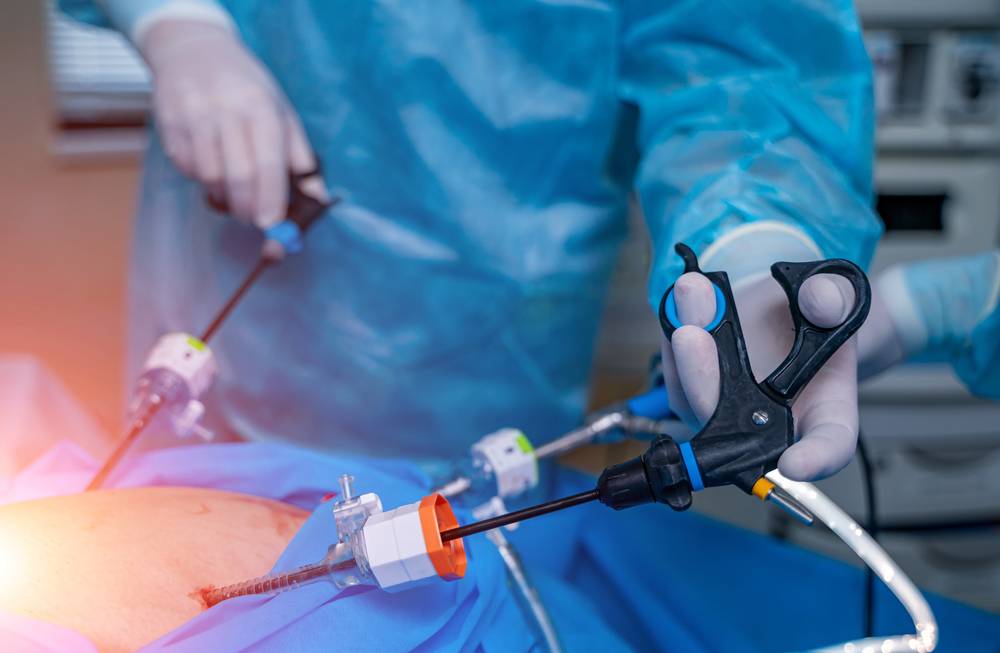According to the American Society of Metabolic & Bariatric Surgery (ASMBS), over 228,000 people in the United States undergo bariatric surgeries. Ideal candidates for bariatric procedures have BMIs between 35 and 45 with obesity-related complications, such as diabetes, hypertension, and heart disease.
Related Article: Complications of Bariatric Surgery
Bariatric surgery is a weight loss procedure that shapes your digestive system’s function. It helps you lose weight and manage/control symptoms of chronic medical conditions, including diabetes, heart disease, stroke, and obstructive sleep apnea. Today’s article will highlight the pros and cons of bariatric surgery.
Get $500 Off on Bariatric Surgery In Miami
Pros of Bariatric Surgery
Knowing the pros and cons of bariatric surgery is essential to making an informed decision about undergoing the procedure. So, before discussing the possible complications or disadvantages of bariatric surgery, let us highlight its benefits.
Minimally Invasive Surgery Options
Most bariatric surgeries today are minimally invasive procedures that require the surgeon to make four or five tiny incisions. The incision is the size of a little fingernail. The surgeon uses different instruments to carry out and complete the procedure without making a large incision.
So, minimally invasive or laparoscopic bariatric surgery leads to increased accuracy, decreased complications, less scarring, less discomfort and pain, shorter hospital stays, and a more streamlined rehabilitation.
Surgery is Reversible
The most significant advantage of bariatric surgery is that you can reverse the procedure once you have achieved your weight loss goals. However, achieving your goals requires maintaining weight with lifestyle modifications, including a strict diet and exercise regimen. A board-certified surgeon can perform laparoscopic surgery to unfold your stomach’s lining and restore its original size.
Long-Term Weight Loss
Researchers at the University of Iowa say that bariatric surgery can help people lose 50% of their excess weight within the first six months. Some people lose 77% of their body weight in the first following the surgery. Likewise, people can maintain 50% to 60% of lost weight for 10 to 14 years following bariatric surgery.
Positive Hormonal Changes
Bariatric surgery helps you maintain an optimal weight for an extended period and positively influences your hormonal production and metabolic system. A 2017 research study highlights that the procedure changes the action of several hormones, particularly in the stomach and intestine.
For instance, it balances the “hunger hormone” called ghrelin and GLP1, allowing your body to regulate glucose metabolism and reduce appetite. So, this positively affects your body’s metabolic, digestive, and homeostatic systems.
Reduced Risks of Chronic Health Conditions
A research study published on NCBI concludes that bariatric surgery can significantly reduce the risk of life-threatening conditions, such as heart disease, diabetes, and cancer. Researchers highlight that bariatric surgery can reduce the risk of heart disease by 40%, cancer by 60%, and diabetes by 92%.
Increased Energy Levels
Most people experience optimal energy levels after bariatric surgery. Because your body does not work on digesting larger meals, its metabolic system works efficiently and produces higher energy levels from meals.
In addition, bariatric surgery changes your stomach and intestinal anatomy and affects hormonal signals. Thus, it increases feelings of fullness, decreases appetite and healthier food preferences, and optimizes metabolism.
Cons of Bariatric Surgery
Although bariatric surgery offers a wide range of health benefits, it has a few downsides or complications. Bear in mind that the surgery’s complications are due to inefficient procedures and failure to maintain a healthy lifestyle.
Excessive Bleeding and Infections
A 2011 study published on PubMed Central highlights that excessive bleeding and infections are common postoperative complications. Although bleeding is a rare complication and only 1% to 4% of people suffer from it, excessive bleeding can cause severe conditions.
The study also states that about 1.7% of patients who undergo bariatric surgery experience infections at the incision site. Not taking care of the incision is the primary reason behind fluid accumulation.
As a result, bacteria accumulate at the incision site and increase fluid production, creating an abscess. The good news is that your surgeon will prescribe antibiotics to prevent bacteria from living on the incision site and causing infections.
Blood Clots
Blood clots are the most significant complication experienced by patients during rehabilitation. Increased blood clotting can cause embolism. Your surgeon can prevent this problem by giving a blood thinner before and after bariatric surgery. However, blood clots are rare.
Gastrointestinal Leaks
Gastrointestinal leaks, including a leaking anastomosis, can cause severe bleeding and infections. You must neglect these life-threatening leaks and seek immediate treatment. Otherwise, you will suffer scarring, ulcers, narrowed anastomosis, or strictures.
Malnutrition
The biggest concern most people have when undergoing bariatric surgery is malnutrition. Types of malnutrition after the procedure include micronutrient and protein deficiencies, including vitamin A and B12, iron, and folate. Therefore, following your surgeon’s dietary instruction is essential to reducing the risk of malnutrition after bariatric surgery.
Hernias
Some people who undergo bariatric surgery are at risk of developing a hernia. If you experience defects, holes, or obstructions in your stomach or abdominal lining, you must contact your surgeon and seek treatment. Obesity is the primary cause of hernia wounds and bulges.
Hypoglycemia
Although hypoglycemia rarely occurs among bariatric patients, some people develop the condition after one year. The primary cause of hypoglycemia is not following your doctor’s guidelines.
An unhealthy diet can trigger hormones and cause rapid drops in blood glucose levels. Remember, the problem is not due to the pancreas but inappropriate signals that trigger the pancreas to release insulin.
What to Do Next?
Do you want to lose weight and reduce the risk of chronic health problems? If yes, Miami Lakes Cosmetics offers high-quality bariatric surgery by board-certified surgeons. Call us between 9 am and 5 pm Monday to Friday to schedule an initial appointment with our experienced surgeon.





